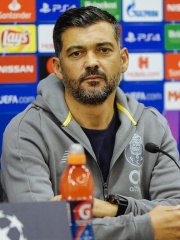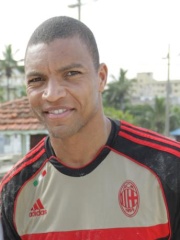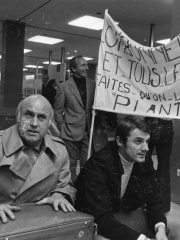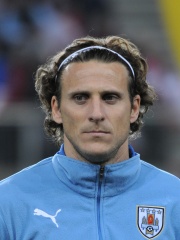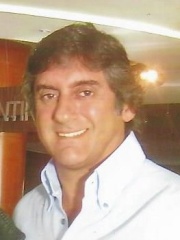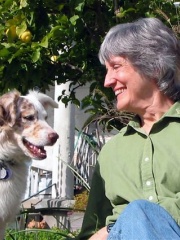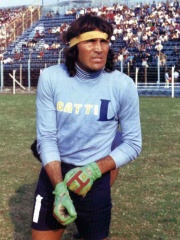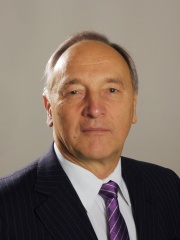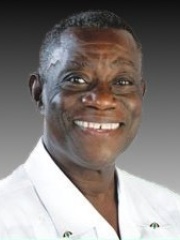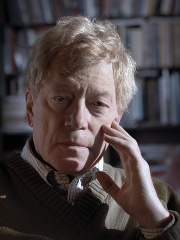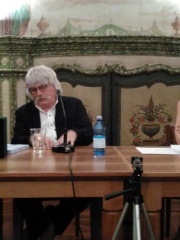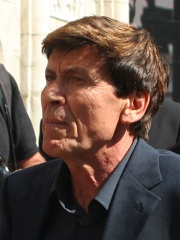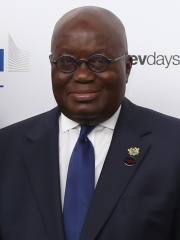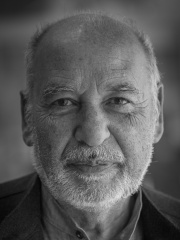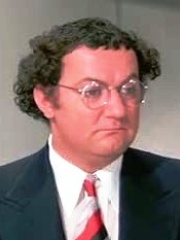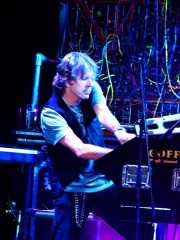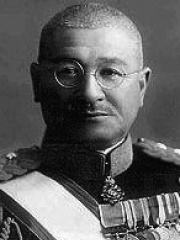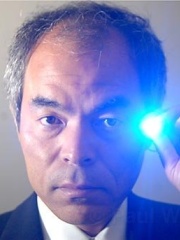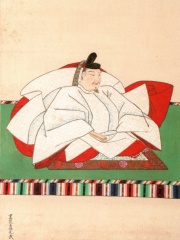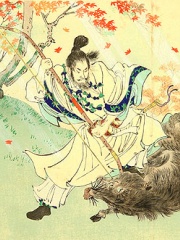SOCCER PLAYER
Masanobu Izumi
1944 - Today

 Masanobu Izumi
Masanobu Izumi
Masanobu Izumi (泉 政伸, Izumi Masanobu; born April 8, 1944) is a former Japanese football player and manager. He played for Japan national team. Read more on Wikipedia
His biography is available in 48 different languages on Wikipedia. Masanobu Izumi is the 331st most popular soccer player (up from 791st in 2024), the 311th most popular biography from Japan (up from 677th in 2019) and the 74th most popular Japanese Soccer Player.
Memorability Metrics
Page views of Masanobu Izumi by language
Among SOCCER PLAYERS
Among soccer players, Masanobu Izumi ranks 331 out of 21,273. Before him are Yoshio Furukawa, Sérgio Conceição, Dida, Shoko Hamada, Nagayasu Honda, and Nobuo Matsunaga. After him are Josip Skoblar, Seki Matsunaga, Diego Forlán, Nani, Hisataka Okamoto, and Enzo Francescoli.
Most Popular Soccer Players in Wikipedia
Go to all RankingsYoshio Furukawa
1934 - Present
HPI: 67.05
Rank: 328
Sérgio Conceição
1974 - Present
HPI: 67.03
Rank: 329
Dida
1973 - Present
HPI: 67.03
Rank: 330
Shoko Hamada
1950 - Present
HPI: 67.02
Rank: 331
Nagayasu Honda
HPI: 67.01
Rank: 332
Nobuo Matsunaga
1921 - 2007
HPI: 66.98
Rank: 333
Masanobu Izumi
1944 - Present
HPI: 66.97
Rank: 334
Josip Skoblar
1941 - Present
HPI: 66.97
Rank: 335
Seki Matsunaga
1928 - 2013
HPI: 66.96
Rank: 336
Diego Forlán
1979 - Present
HPI: 66.96
Rank: 337
Nani
1986 - Present
HPI: 66.95
Rank: 338
Hisataka Okamoto
1933 - Present
HPI: 66.95
Rank: 339
Enzo Francescoli
1961 - Present
HPI: 66.95
Rank: 340
Contemporaries
Among people born in 1944, Masanobu Izumi ranks 111. Before him are Donna Haraway, Hugo Gatti, Andris Bērziņš, Kim Yong-il, John Atta Mills, and Roger Scruton. After him are Karl Jenkins, Gianni Morandi, Nana Akufo-Addo, Tahar Ben Jelloun, Coluche, and Keith Emerson.
Others Born in 1944
Go to all RankingsDonna Haraway
HISTORIAN
1944 - Present
HPI: 67.42
Rank: 105
Hugo Gatti
SOCCER PLAYER
1944 - 2025
HPI: 67.37
Rank: 106
Andris Bērziņš
POLITICIAN
1944 - Present
HPI: 67.29
Rank: 107
Kim Yong-il
POLITICIAN
1944 - Present
HPI: 67.22
Rank: 108
John Atta Mills
POLITICIAN
1944 - 2012
HPI: 67.20
Rank: 109
Roger Scruton
PHILOSOPHER
1944 - 2020
HPI: 67.07
Rank: 110
Masanobu Izumi
SOCCER PLAYER
1944 - Present
HPI: 66.97
Rank: 111
Karl Jenkins
MUSICIAN
1944 - Present
HPI: 66.96
Rank: 112
Gianni Morandi
SINGER
1944 - Present
HPI: 66.91
Rank: 113
Nana Akufo-Addo
POLITICIAN
1944 - Present
HPI: 66.87
Rank: 114
Tahar Ben Jelloun
WRITER
1944 - Present
HPI: 66.82
Rank: 115
Coluche
ACTOR
1944 - 1986
HPI: 66.81
Rank: 116
Keith Emerson
COMPOSER
1944 - 2016
HPI: 66.79
Rank: 117
In Japan
Among people born in Japan, Masanobu Izumi ranks 311 out of 6,245. Before him are Nagayasu Honda (null), Nobuyuki Abe (1875), Shuji Nakamura (1954), Nobuo Matsunaga (1921), Emperor Bidatsu (538), and Emperor Sutoku (1119). After him are Seki Matsunaga (1928), Emperor Go-Tsuchimikado (1442), Hisataka Okamoto (1933), Emperor Senka (467), Emperor Yūryaku (418), and Noritaka Hidaka (1947).
Others born in Japan
Go to all RankingsNagayasu Honda
SOCCER PLAYER
HPI: 67.01
Rank: 305
Nobuyuki Abe
POLITICIAN
1875 - 1953
HPI: 67.01
Rank: 306
Shuji Nakamura
PHYSICIST
1954 - Present
HPI: 66.98
Rank: 307
Nobuo Matsunaga
SOCCER PLAYER
1921 - 2007
HPI: 66.98
Rank: 308
Emperor Bidatsu
POLITICIAN
538 - 585
HPI: 66.98
Rank: 309
Emperor Sutoku
POLITICIAN
1119 - 1164
HPI: 66.98
Rank: 310
Masanobu Izumi
SOCCER PLAYER
1944 - Present
HPI: 66.97
Rank: 311
Seki Matsunaga
SOCCER PLAYER
1928 - 2013
HPI: 66.96
Rank: 312
Emperor Go-Tsuchimikado
POLITICIAN
1442 - 1500
HPI: 66.96
Rank: 313
Hisataka Okamoto
SOCCER PLAYER
1933 - Present
HPI: 66.95
Rank: 314
Emperor Senka
POLITICIAN
467 - 539
HPI: 66.95
Rank: 315
Emperor Yūryaku
POLITICIAN
418 - 479
HPI: 66.95
Rank: 316
Noritaka Hidaka
SOCCER PLAYER
1947 - Present
HPI: 66.94
Rank: 317
Among SOCCER PLAYERS In Japan
Among soccer players born in Japan, Masanobu Izumi ranks 74. Before him are Yasuyuki Kuwahara (1942), Toshio Hirabayashi (null), Yoshio Furukawa (1934), Shoko Hamada (1950), Nagayasu Honda (null), and Nobuo Matsunaga (1921). After him are Seki Matsunaga (1928), Hisataka Okamoto (1933), Noritaka Hidaka (1947), Tadao Horie (1913), Reizo Fukuhara (1931), and Fukusaburo Harada (null).
Yasuyuki Kuwahara
1942 - 2017
HPI: 67.06
Rank: 68
Toshio Hirabayashi
HPI: 67.06
Rank: 69
Yoshio Furukawa
1934 - Present
HPI: 67.05
Rank: 70
Shoko Hamada
1950 - Present
HPI: 67.02
Rank: 71
Nagayasu Honda
HPI: 67.01
Rank: 72
Nobuo Matsunaga
1921 - 2007
HPI: 66.98
Rank: 73
Masanobu Izumi
1944 - Present
HPI: 66.97
Rank: 74
Seki Matsunaga
1928 - 2013
HPI: 66.96
Rank: 75
Hisataka Okamoto
1933 - Present
HPI: 66.95
Rank: 76
Noritaka Hidaka
1947 - Present
HPI: 66.94
Rank: 77
Tadao Horie
1913 - 2003
HPI: 66.88
Rank: 78
Reizo Fukuhara
1931 - 1970
HPI: 66.88
Rank: 79
Fukusaburo Harada
HPI: 66.88
Rank: 80

